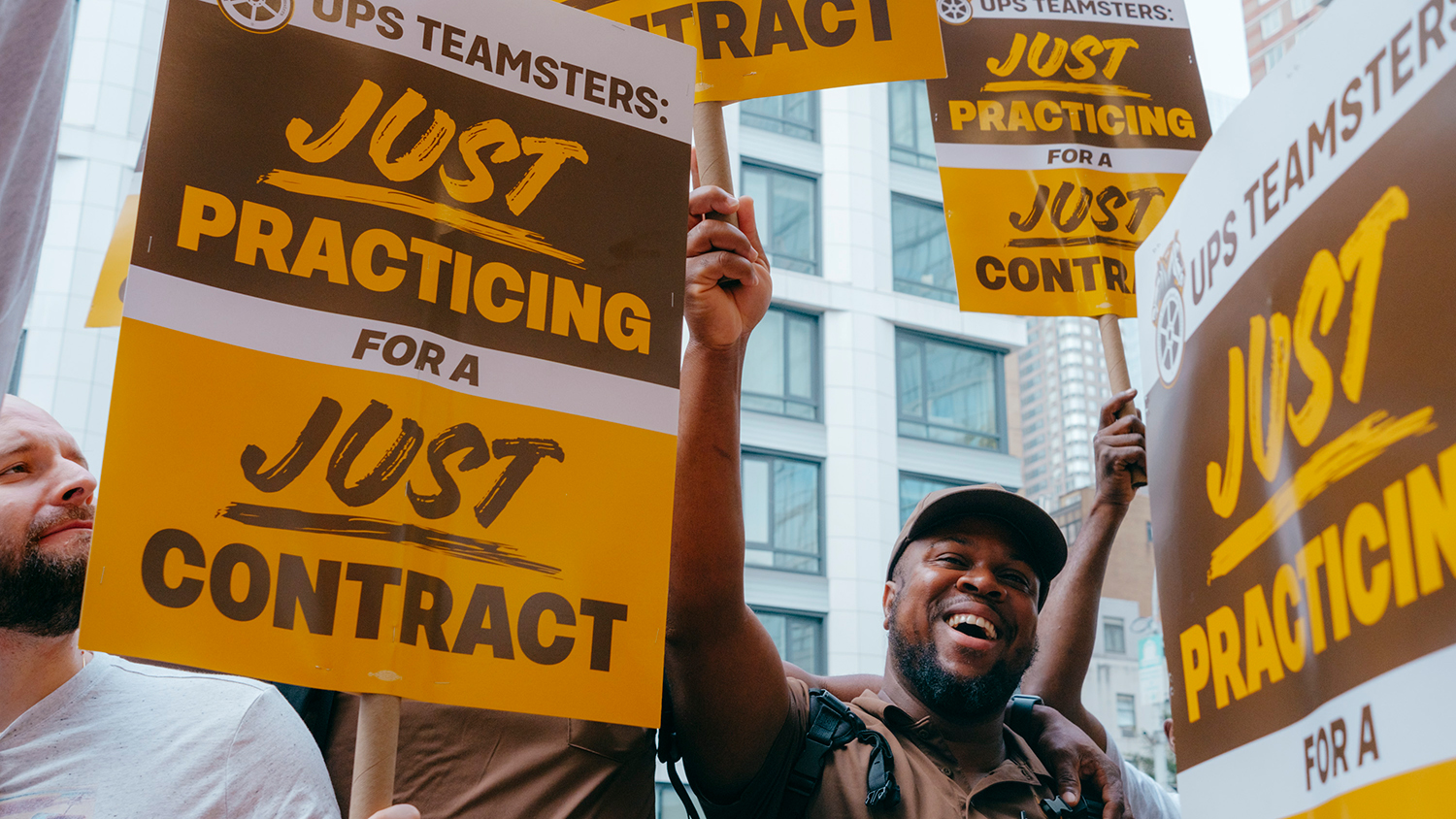350,000 UPS workers, organized by the International Brotherhood of Teamsters, could go on strike on August 1 if their current contract expires before the company and the union can reach an agreement on a new one. Teamsters leaders recently rejected a UPS proposal at the negotiating table, containing shockingly low pay raises of USD 0.50 per year. UPS walked out of negotiations on July 5 without acquiescing to worker demands around economic issues, which include fair pay.
The UPS Teamsters struggle has been at a high point for many months now, since negotiations for the new contract began on April 17. This week, UPS Teamsters began holding practice pickets before shifts, to get their workers into fighting shape and present a credible strike threat to the company. Leaders have been hard at work mobilizing workers and flexing organizing muscles that have largely dormant since the epic strike of 1997, which went on for fifteen days and cost the company USD 40 million per day.
Peoples Dispatch was at a practice picket in Brooklyn, New York, in which UPS workers spoke candidly about the trauma of being frontline workers in the epicenter of the epicenter in March 2020 at the beginning of the COVID-19 pandemic.
UPS workers, who have the crucial task of handling and delivering packages, were among the class of workers classified by both bosses and the state as “essential workers” during the pandemic, and therefore made to continue working in person despite the hundreds of deaths per day. During the peak of infections and deaths in the US in 2020, images circulated on the news of burials in mass graves of impoverished victims of COVID, patients dying in the hallways of hospitals, and refrigerated trucks kept parked behind hospitals to transport the dead.
“I am still traumatized by the pandemic,” UPS worker Angelique Dawkins, a part of the Teamsters Local 804 Women’s Committee, said outside of a practice picket in Canarsie, Brooklyn. “Every time I hear a siren, it gives me anxiety, because I remember every time during the pandemic, for two years straight, working in my neighborhood, every time I hear[d] a siren, or [saw] an ambulance car, that [meant] somebody died.”
“People who I have been working with for 16, 17 years, delivery [workers] too, their parents, both parents dying back to back,” she said. “It’s getting better, but that’s trauma from the pandemic, when everybody was at home with their children, with their kids, we were at work. And you guys forgot that we had children too, who were out of school, who didn’t have anywhere to go, any day camp, or anybody to watch them, so our children were home by themselves while we were here. And no thank you [from the company] no nothing, no compensation. It’s time for them to give us that respect.”
UPS Teamsters never received hazard pay for working through the pandemic. Meanwhile, the company made over USD 8.7 billion in profit in 2020 as the rest of the nation’s economy suffered. In 2021, profits skyrocketed to USD 13.1 billion and USD 13.9 billion in 2022. This was while hundreds of thousands of Teamsters frontline workers became infected or died from COVID.
“Don’t forget, [UPS] gave us one thing,” lead steward Antoine Andrews told workers on the practice picket line in Canarsie. “They did, we have to acknowledge that they gave us one thing and they called us essential. But as they sit down at the negotiation table, they’re not negotiating on behalf of so-called essential workers.”
“A lot of the things that went on during the pandemic, the PPEs and the safety part of it, was a lot because of the safety committee, for which I thank the safety committee, they did a tremendous job. And the stewards. Because if it wasn’t for the stewards, and our [Business Agent] Dave Citron, [UPS] would’ve had us out there without masks,” said shop steward John Acosta outside the practice picket in Brooklyn. “They would’ve said, oh, get your own masks.”
“This is the reason why we’re fighting hard for a good contract,” he said. “Because the pandemic changed everything. We weren’t prepared for that. None of us were.”





